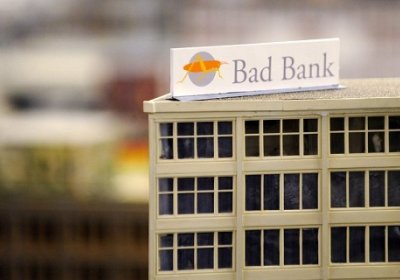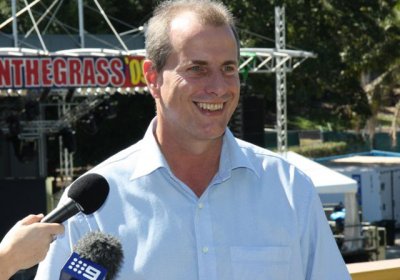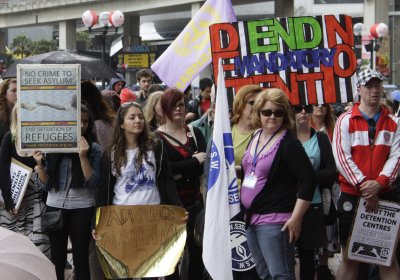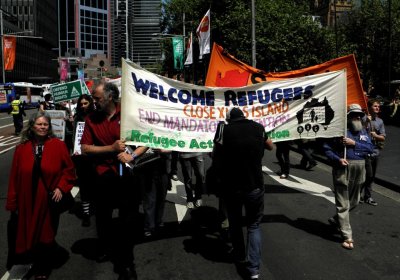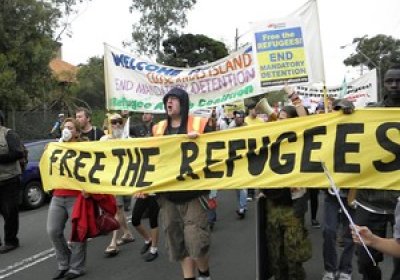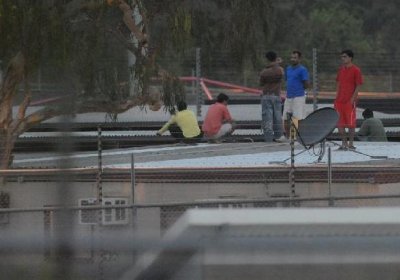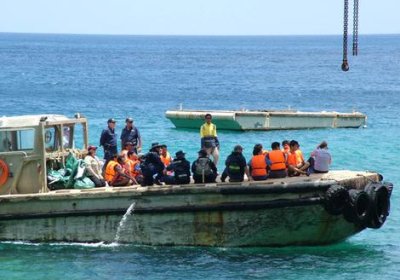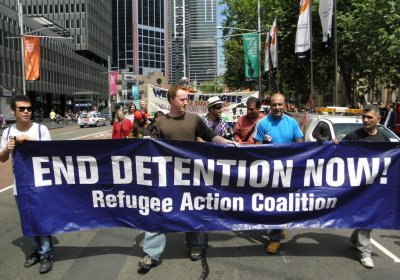In Hobart’s Pontville detention centre, 35 Afghan refugees had been on hunger strike for a week, putting three of them in hospital, when they were joined by more than 100 others. It meant almost half the centre’s detainees were refusing food by January 24.
The actions were in protest against the government’s failure to deliver its promise to release more refugees from detention to live in the community on bridging visas while their claims are assessed.
Jay Fletcher
ANZ Bank, one of Australia’s biggest banks, plans to axe up to 1000 jobs over six months “to protect profit margins from rising costs” and the euro debt crisis, The Australian said on January 13.
The Sydney Morning Herald said the Finance Sector Union (FSU) expects up to 700 jobs to be cut in coming weeks. Following job losses in October last year, one ANZ executive told the SMH: “This will be bigger than the job cuts that followed the GFC.
Aboriginal man Terrance Briscoe, 28, died in Alice Springs police custody on January 5. But despite allegations from his family of police brutality, an independent investigation has been ruled out by the Northern Territory’s chief minister Paul Henderson.
Aboriginal rights campaigners in Alice Springs said Briscoe was found unconscious in his cell about 2am. He had been “taken in 'protection custody' earlier that night after drinking with friends”.
Rohingya refugee Harun had been in Australian detention for more than two years when he was told by letter that he would never be a free man in Australia.
Despite being a recognised refugee under the United Nations High Commissioner for Refugees and the Australian immigration system, Australia’s secret security organisation had decided he was a “threat” and should not be given a protection visa.
The federal government’s decision to release small numbers of refugees from detention to live in the community while their claims are assessed will be welcome news to many refugees that have suffered under its mandatory detention policy.
In the lead up to the ALP national conference over December 3-4, Labor’s refugee policy has been in the spotlight.
Security guards at the Northern Immigration Detention Centre (NIDC) locked a man suffering from an electric shock in a room until he collapsed on November 15. The incident happened less than a week after the contract with the private firm that runs the centre was made public and revealed guards could be hired with no formal qualifications.
The government has undermined the right to a fair trial of up to 350 mostly Indonesian people now facing charges of “people smuggling” in Australian courts. It has done so by introducing hastily drafted, retrospective amendments to the Migration Act.
The People Smuggling Deterrence Bill 2011 was passed in the lower house November 1, supported by Labor and the Coalition. If carried by the Senate, it will amend the migration act to make it an offence to bring a person to Australia with “no valid visa”.
Greens MP Adam Bandt and independent MP Rob Oakeshott spoke against the bill.
An eight-day protest on the rooftop at the Northern Immigration Detention Centre (NIDC) in Darwin ended shortly before five refugees “locked themselves in a room … where one man took an overdose of sleeping pills while the other four began cutting themselves,” the Darwin Asylum Seeker Support and Advocacy Network (DASSAN) said on November 2.
Serco guards broke down the door and one man was taken to hospital. Two other refugees later tried to hang themselves.
Another horrific tragedy has struck a group of refugees taking the final-resort option of boarding an unseaworthy boat to try to reach Australia in search of asylum.
See all of Green Left's extensive Occupy coverage here
The global Occupy movement has inspired huge numbers of Australians who have grown chronically disengaged with the political game-playing of the two big parties and an economic system that puts profit before people and the planet.
As the federal Labor government was forced to drop its maligned “Malaysia solution” and process all refugees arriving by boat in Australia, there was the hint that its inhumane detention of thousands of refugees would also be questioned.
Petty politicking over whether refugees should be illegally deported to Malaysia or to Nauru forced the Australian government to abandon its policy of “offshore processing” of refugees on October 13.
Since the “Tampa election” in 2001, competition between the two main parties over who can most mistreat the small number of refugees arriving in Australia by boat has been at the centre of Australian electoral politics.
- Previous page
- Page 12
- Next page

